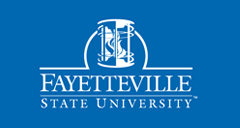Abstract
This paper offers a historical theoretical discussion and practical perspective on the qualitative paradigm of inquiry referred to as Naturalistic Inquiry (Lincoln & Guba, 1985). Moreover, it endeavors to demonstrate the paradigm’s versatility and usefulness when attempting to illuminate phenomena that specifically occur when students experience and interact with engaging, innovative, and experientially based pedagogies (e.g., service-learning, work-integrated learning, community-based learning). This paper presents and paradigmatically supports the researchers’ worldview through a logical primacy and discussion of ontological, epistemological, axiological, and methodological perspectives (Guba & Lincoln, 2001). Following this, Naturalistic Inquiry is identified as a paradigm of inquiry that aligns with the worldview and serves as a useful paradigm for observing phenomena, collecting and analyzing data, and presenting transferable findings with regard to experiential pedagogy. This paper could serve as a citable source and theoretical underpinning advocating and calling for qualitative methodologies and research into student and community engagement.
Recommended Citation
Perry, Lane G. III and Perry, April
(2017)
"Facilitating Student Engagement Research: A Historical Analogy for Understanding and Applying Naturalistic Inquiry,"
Journal of Research Initiatives: Vol. 3:
Iss.
1, Article 2.
Available at:
https://digitalcommons.uncfsu.edu/jri/vol3/iss1/2
Included in
Curriculum and Instruction Commons, Educational Methods Commons, Higher Education Commons, History Commons, Institutional and Historical Commons
